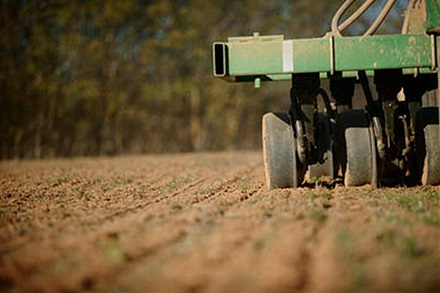
Financial Review | 03 Jun 2013
Farmers push for FTA with China
AMLISA MURRAY
THE federal government is under pressure to conclude a free-trade agreement (FTA) with China in an effort to help restore the competitiveness of Australian farmers, who have been hurt by the high dollar and rising costs.
Australian negotiators will begin a record 19th round of talks in Beijing on Tuesday, as traders in China say New Zealand farm produce is becoming more competitive, partly because of its FTA.
Kirribilli Pastoral Company founder Nick Hunt said New Zealand milk and meat was often 20 per cent cheaper than its Australian equivalent.
"More and more New Zealand product is getting sold [in China]," he said. "I think it is one of the great failings of successive governments they have not secured a free-trade agreement with China."
Australia has been under pressure to ink a deal, after New Zealand became the first developed economy to sign an FTA in 2008. That deal has been a boost for New Zealand’s dairy and seafood industries and has also made its beef, lamb and wine more price competitive in the Chinese market.
The significant price advantage for New Zealand comes at a time when Chinese consumers are demanding high quality imported produce after domestic food scandals in recent years.
Australia began formal negotiations with Beijing in May 2005, but a breakthrough has been elusive as China seeks an easier run for its state-owned companies when they invest in Australia.
The Department of Foreign Affairs and Trade (DFAT) said 18 officials would travel to Beijing for three days of negotiations.
"Australia is seeking a high-quality and comprehensive FTA with China," a spokesperson for DFAT said.
Trade Minister Craig Emerson has played down expectations of a breakthrough during this round of talks.
The FTA was rarely mentioned during Prime Minister Julia Gillard’s visit to China in April, when the two countries agreed to establish annual talks.
Beijing has been pushing for Canberra to lift the threshold under which its state-owned enterprises (SOE) can invest in Australia. At present a review of the investment is automatically triggered if it is being made by an SOE. Beijing wants the threshold to be lifted from zero to $1 billion.
Meanwhile, Canberra has been resisting the inclusion of an "investor state dispute settlement provision", which it argues would advantage foreign companies by allowing them to directly initiate dispute settlement proceedings.
This week’s round of meetings is most likely the last chance for the Labor government to strike a deal ahead of the federal election on September 14.
The bilateral negotiations come just days after China said, for the first time, it was considering joining the US-led Trans-Pacific Partnership talks to set up a free-trade zone.
Australia and the US are among the 11 members of the TPP and last month Japan was accepted into the group. It is this move that may have prompted China, which has been pushing for a separate trade pact via the Association of Southeast Asian Nations’ Regional Comprehensive Economic Partnership, to consider joining.
"Japan has given the TPP authenticity," said Alan Oxley, a former top trade negotiator and now chairman of the Australian APEC Study Centre at Monash UniversityStrict access problems.
However, he said China would find it difficult to meet the strict access and governance requirements under the TPP. A bilateral free-trade agreement would be better for Australia, he said.
"The TPP will take a long time to negotiate and will be a very broad deal.
"I don’t think Australia wants the TPP as a substitute for a bilateral agreement."